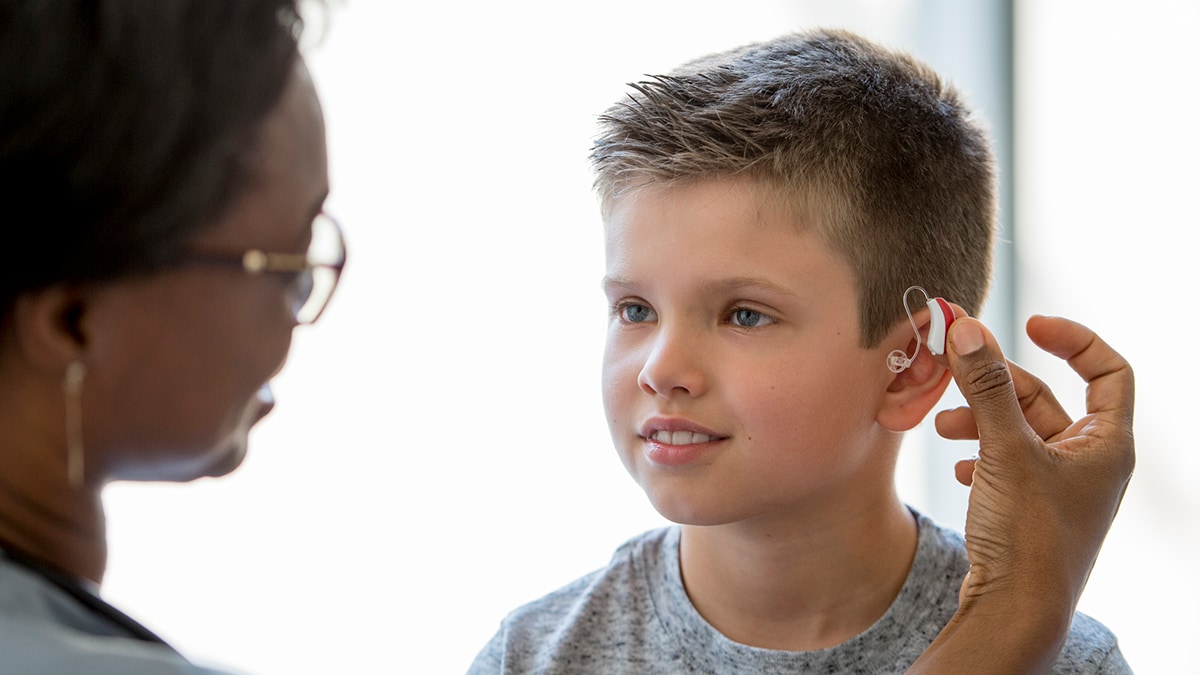What to know
Interventions for hearing loss can vary for children depending on their age. Keep reading to find out more.

Interventions
No single treatment or intervention is the answer for every child or family. Good intervention plans will include close monitoring of the child and family needs, follow-ups to check progress, and making needed adjustments along the way to help support the child and family. There are many different options for children with hearing loss and their families. Some intervention options include the following:
- Working with a professional (or team) who can help a child and family learn to communicate.
- Getting a hearing device, such as a hearing aid.
- Joining support groups.
- Taking advantage of other resources available to children with a hearing loss and their families.
Early intervention (0-3 years)
Hearing loss can affect a child's ability to develop speech, language, and social skills. The earlier a child who is deaf or hard-of-hearing starts getting services, the more likely the child's speech, language, and social skills will reach their full potential.
Early intervention program services help young children with hearing loss learn language skills and other important skills. This intervention involves a therapist, such as a speech-language pathologist, teaching communication strategies to the child and parent(s) or helping the parent or other caregivers blend extra lessons into the day.
Babies who are diagnosed early with hearing loss should begin to get intervention services as soon as possible, ideally before 6 months of age.
There are many services available through the Individuals with Disabilities Education Improvement Act 2004 (IDEA 2004). Services for children from birth through 36 months of age are called Early Intervention or Part C services. Even if a child has not been diagnosed with a hearing loss, he or she may be eligible for early intervention treatment services. The IDEA 2004 says that children under the age of 3 years (36 months) who are at risk of having developmental delays may be eligible for services. These services are provided through an early intervention system in every jurisdiction. Through this system, parents can ask for an evaluation.
Special education (3-22 years)
Special education is instruction specifically designed to address the educational and related developmental needs of older children with disabilities or those who are experiencing developmental delays. Services for these children are provided through the public school system. These services are available through the Individuals with Disabilities Education Improvement Act 2004 (IDEA 2004), Part B.
Find additional information about interventions for hearing loss.
